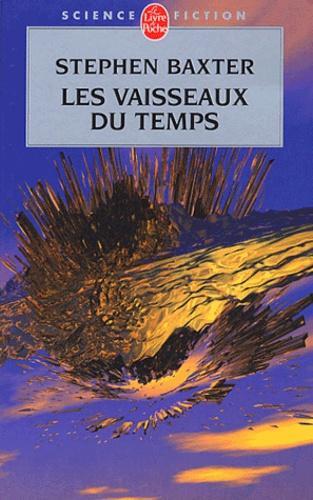Thom reviewed The Time Ships by Stephen Baxter
Review of 'The Time Ships' on 'Goodreads'
1 star
Narrative exposition is the insertion of important background information within a story. This story (an authorized by the Wells estate sequel to The Time Machine) is nearly all exposition, and much the worse for it. If you haven't read the original, do so - but skip this.
Yes, there is some action in this story, or rather should I say stories. Contained in this long volume are several stories strung together into one narrative. None of the brevity of the original. Herein you may find:
- Enemy Mine, where the Morlock is more civilized than the Human
- Robinson Crusoe, stranded this time in the Paleocene (with the Morlock as Friday?)
- The Prisoner, striving to break free from one prison and falling into another
- a far future run by nanobots (and yet another prison)
- Back to the Future, where interference changes the future, wait no, is required …
Narrative exposition is the insertion of important background information within a story. This story (an authorized by the Wells estate sequel to The Time Machine) is nearly all exposition, and much the worse for it. If you haven't read the original, do so - but skip this.
Yes, there is some action in this story, or rather should I say stories. Contained in this long volume are several stories strung together into one narrative. None of the brevity of the original. Herein you may find:
- Enemy Mine, where the Morlock is more civilized than the Human
- Robinson Crusoe, stranded this time in the Paleocene (with the Morlock as Friday?)
- The Prisoner, striving to break free from one prison and falling into another
- a far future run by nanobots (and yet another prison)
- Back to the Future, where interference changes the future, wait no, is required for the future
All with suitable exposition on Dyson sphere's, survival, and quantum mechanics.
There are three theories of time travel where the past is involved, and Wells never chose which one belonged to his story (set in the far future). Baxter seems to have decided to use all three, which makes life that much more confusing for the reader - nothing a little more exposition can't fix!
When I started writing this review, I was thinking 2 stars - but I seem to have talked myself into a lower rating. Sorry Stephen, this book just wasn't for me, and I can't recommend it.

